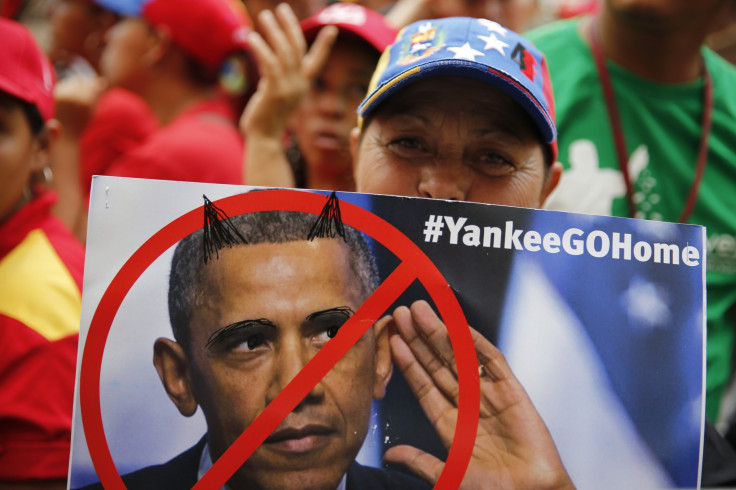
Venezuela was a playground for doublespeak this weekend as President Nicolás Maduro gained new executive powers and flexed the country’s military muscles with mind-numbing rhetoric. Venezuelan armed forces conducted war training games called “military peace exercises” by state media. In the National Assembly, the ruling Chavista PSUV party passed a law giving Maduro rule by imperial decree for nine months. The name of the legislation? The Anti-Imperialist Enabling Law.
“Whether the threat comes from abroad or from home, we want the president to have all of the weapons in his hands to fight it,” Diosdado Cabello, Assembly President and head of the PSUV said as the measure passed on Sunday. Minority opposition decried the law, calling it a “weapon” aimed political challengers.
"This is a weapon they are giving Maduro to use against those who disagree with him," said congressman Angel Medina, who opposed the law in in a two hour debate on the Assembly floor.
The decree was passed in the wake sanctions issued by the the White House targeting seven Venezuelan officials, and on the tail of an alleged coup, which Maduro claimed was orchestrated by the U.S. The White House also called the small South American country a “security threat.”
“The U.S. has declared Venezuela an unusual and extraordinary threat and that for us means an imminent danger,” Defense Minister Vladimir Padrino said to state media, according to the WSJ.
Only a few years ago, top Venezuelan officials claimed that economic sanctions from the U.S. , let alone the recent light travel bans, were “nothing to fear.”
“We cannot determine our foreign policy by fear of US sanctions,” said oil minister Rafael Ramirez in March of 2012, as Venezuela defended its decision to provide fuel to the Assad regime. “We’ve said that they honestly don’t matter to us… no one is going to impose upon us from outside.”
You wouldn’t recognize Ramirez, now Venezuela’s Ambassador to the U.N, when he addressed the sanctions last week.
“This decision by President [Obama] isn’t a threat, it's an outright aggression against our country,” said Ramirez in support of the “anti-imperialist” law in an interview with RT.
© 2025 Latin Times. All rights reserved. Do not reproduce without permission.




